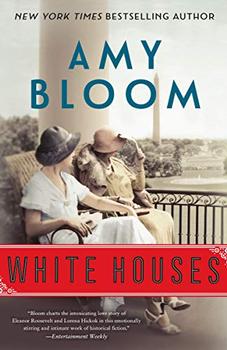Summary | Excerpt | Reading Guide | Reviews | Beyond the Book | Readalikes | Genres & Themes | Author Bio

As rapidly as radio, telephone and telegraph could spread the alarm countrywide, the biggest police hunt in history was under way.
Seventy State Troopers from Morristown, Trenton, Somerville and Lambertsville hopped on motorcycles and in automobiles and began to race over the countryside for a radius of a hundred miles around Princeton, which is ten miles west of the Lindbergh residence.
At midnight the teletype alarm had been spread over five States. Commissioner Edward P. Mulrooney, aroused from sleep, personally took control of the New York City search, which included scrutiny of all ferries, tunnels and bridges. Police in Pennsylvania, Delaware and Connecticut were also spreading a gigantic net.
Child Carried Through Window
The Lindbergh baby had been dressed in his sleeping gown by his nurse, and was asleep in the nursery on the first floor of the country mansion when he was kidnaped. The child was taken out of a window, through which the kidnaper or gang of kidnapers apparently entered the home.
A note, contents not disclosed, was found on the second floor of the home. Whether this was a demand for ransom could not be learned - although that was the assumption in some quarters.
This went on for a few more columns, bringing in the neighbor with the green car (who had nothing to do with anything) and recounting the loving, playful disagreement the Lindberghs apparently had over what to name the baby in the first place, using sentiment (What shall we name the Little Eaglet?) to underscore the strong and irresistible likelihood of tragedy.
I was sliding through dirty New Jersey snow, looking for footprints, happy as a rose in sunshine. I got a byline every day. Every morning, I crawled out of my miserable motel bed and sang while I got dressed. I brought doughnuts and cigarettes and dirty jokes wherever I went and when reporters were getting shut out of Hopewell, New Jersey, I was not one of them. I sat over a typewriter in a freezing room, still wearing my coat and hat, and banged out story after story and chased clue after clue. It was as good a serial as you could find on the radio. Thirteen ransom notes and a host of screwy characters, including John Condon, a high school principal, who popped up out of nowhere to offer himself as an intermediary between Lindbergh and the kidnappers. John Condon seemed serious, modest, distraught and I think he was the best con man I ever saw. None of us ever figured out what his long game was. If poor Richard Hauptmann, the kidnapper, had been as clever as John Condon, he wouldn't have got the chair. And if poor Richard Hauptmann hadn't been German, the press wouldn't have tagged him with the nickname "Bruno" and we wouldn't have had to pretend that the two eyewitnesses against him were anything but blind and broke. I could write anything, take up any crazy clue (a scrap of blue fabric in Maryland, a mystery man in Rhode Island), as long as the root of the story was untouched: American hero and wife search for missing baby.
Every suspicion we had of corruption and desperation on the part of the cops and J. Edgar Hoover and the FBI, we kept to ourselves. Lindbergh was untouchable. (Never mind his "America First" speeches, blaming Jews for anti-Semitism. Never mind that famous, boyish grin flashing when he got the Commander Cross of the Order of the German Eagle from Göring in Berlin in 1938, with Hitler's best wishes. And most of all, never mind that just four months before the kidnapping, Lucky Lindy had taken his baby and hidden him in a linen closet while his wife, Anne Morrow Lindbergh, searched the house weeping hysterically. Then he handed her the baby. What a card.)
I believed Lindbergh hired John Condon. I thought Lindbergh killed the baby by accident and built a cover-up with the bravado and precision he was famous for. And when the poor little baby was found, four miles from the house, head staved in and decomposing, poor German Richard Hauptmann didn't have a chance.
Excerpted from White Houses by Amy Bloom. Copyright © 2018 by Amy Bloom. All rights reserved. No part of this excerpt may be reproduced or reprinted without permission in writing from the publisher.
Your guide toexceptional books
BookBrowse seeks out and recommends the best in contemporary fiction and nonfiction—books that not only engage and entertain but also deepen our understanding of ourselves and the world around us.